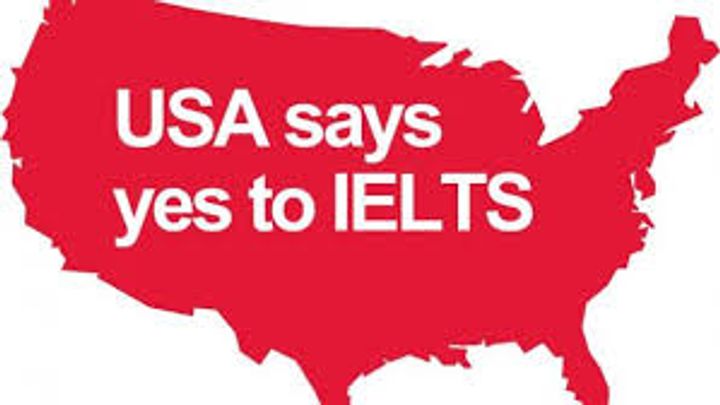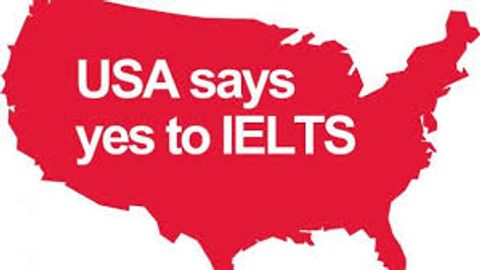
IELTS for USA: A Complete Guide for Test-Takers
The International English Language Testing System (IELTS) is one of the most widely recognized English proficiency tests globally. It evaluates the English language skills of individuals in four key areas: Listening, Reading, Writing, and Speaking. Although IELTS is traditionally associated with immigration and study in countries like the UK, Canada, and Australia, its role in the United States has significantly grown in recent years.
In the USA, over 3,000 institutions, including universities, colleges, and professional licensing organizations, now accept IELTS scores. It is used by those applying for student visas, work permits, medical board certifications, or employment-based immigration.
With the growing number of international students and professionals heading to the U.S., IELTS has become a valuable alternative or complement to TOEFL (another widely used test). Understanding how and when to use IELTS for U.S. purposes is crucial for those looking to study, work, or migrate there.
Why IELTS for USA Is Important Today
Growing Demand from International Students and Workers
The U.S. remains a top destination for:
Higher education (especially for graduate and postgraduate programs)
Healthcare professionals such as nurses and doctors
Skilled workers and immigrants in STEM fields
Many of these categories require proof of English proficiency, and IELTS provides a standardized, widely accepted way to demonstrate this.
Key Benefits
Academic acceptance: Many top universities—including Harvard, MIT, and Stanford—accept IELTS scores.
Professional recognition: Licensing bodies such as the ECFMG (Educational Commission for Foreign Medical Graduates) and CGFNS (Commission on Graduates of Foreign Nursing Schools) recognize IELTS.
Visa support: IELTS is accepted by U.S. Citizenship and Immigration Services (USCIS) for certain visa types.
Common Issues It Helps Address
Meeting English requirements when TOEFL isn’t suitable or available
Providing language proof for U.S. visas under specific categories
Proving English skills for healthcare licensing or employment
Recent Updates and Trends (As of 2024–2025)
IELTS One Skill Retake (OSR) Expanded
In March 2024, the IELTS OSR feature was expanded in several test centers worldwide. It allows candidates to retake only one skill section (Listening, Reading, Writing, or Speaking) instead of the whole test if they’re unsatisfied with one score. This makes it easier for U.S.-bound candidates to improve their results without restarting the full exam.
Computer-Delivered IELTS Growth
The popularity of computer-delivered IELTS has increased in major cities, including U.S.-linked centers in India, Nigeria, and the Philippines. It offers faster results (typically within 3–5 days), which is beneficial for those facing tight admission or visa deadlines.
U.S. Healthcare Recognition
In late 2023, the CGFNS reaffirmed its acceptance of IELTS Academic for evaluating foreign-trained nurses. Additionally, state medical boards in California, Texas, and New York continue to update guidelines that clarify language test score requirements, including minimum bands.
Laws, Visa Rules, and Policy Guidelines for the USA
While IELTS is not a legal requirement for all U.S. immigration or education categories, it plays a crucial role in several regulated pathways.
U.S. Student Visa (F-1)
For an F-1 visa, U.S. universities may require proof of English proficiency as part of the admission process. While TOEFL is more common, IELTS is equally accepted by most institutions. The U.S. government does not mandate a specific English test, but relies on what the university determines acceptable.
Work Visas (H-1B, O-1, etc.)
Though the H-1B visa does not officially require an English language test, many employers and recruitment bodies use IELTS to verify language skills, especially for client-facing roles or regulated professions.
Healthcare Licensure and Green Card
If you’re a nurse or doctor, immigration pathways often require:
IELTS Academic with specific minimum scores
Results sent directly to licensing authorities, such as ECFMG or CGFNS
For example:
| Organization | Module Required | Minimum Scores |
|---|---|---|
| CGFNS | IELTS Academic | Overall 6.5, Speaking 7.0 |
| ECFMG | IELTS Academic | Overall 7.0, Minimum 6.5 in each section |
U.S. Immigration and USCIS
For employment-based green card applicants (Schedule A, Group I)—such as foreign-trained nurses—the USCIS requires proof of English proficiency, and IELTS Academic is accepted as part of this process.
Tools and Resources to Help Prepare
Official IELTS Preparation Tools
IELTS.org – The official website offers sample questions, score guidelines, and test center locations.
IELTS Indicator – An online, at-home test used for some academic applications (not for visas).
IELTS Prep App – Offers free practice tests and vocabulary help.
IELTS Progress Check – Paid practice tests graded by IELTS examiners with feedback.
Other Helpful Platforms
Road to IELTS – Interactive course developed by the British Council.
Magoosh IELTS Prep – Paid plans with video lessons and mock tests.
IELTS Liz & IELTS Simon – Reputable websites with writing and speaking tips.
YouTube Channels like AcademicEnglishHelp and E2 IELTS – For video-based learning.
Frequently Asked Questions (FAQs)
1. Is IELTS accepted for U.S. student visas?
Yes. While not required by the U.S. government directly, most colleges and universities accept IELTS as valid proof of English proficiency for F-1 visa applications.
2. Which IELTS version should I take for the USA?
For university admission: IELTS Academic
For immigration or healthcare: IELTS Academic
For general work-related purposes (rare): IELTS General Training
Always check with the receiving institution or employer before booking.
3. What is a good IELTS score for the USA?
It depends on the purpose:
Universities: Usually 6.0–7.5 overall, with no band lower than 6.0
Nursing licenses: Minimum 6.5 overall, 7.0 in Speaking
Medical licensure (ECFMG): Minimum 7.0 overall
4. How long is the IELTS score valid for U.S. applications?
IELTS scores are valid for 2 years from the test date. You must submit valid scores before they expire for them to be considered by institutions or immigration authorities.
5. Is IELTS easier than TOEFL for U.S. purposes?
That’s subjective. IELTS has a more British-style format, and some test-takers find it more natural due to the face-to-face speaking section. TOEFL is fully computer-based. Both are accepted widely, and the choice depends on your comfort with the test format.
Final Thoughts
IELTS is a recognized and respected pathway for entering the United States, whether for education, healthcare, or professional work. With recent updates like one-skill retakes and faster computer-based testing, it has become more accessible and flexible for test-takers worldwide.
Whether you're aiming for a university admission, seeking licensure as a nurse, or preparing a green card application, IELTS offers a credible, structured way to prove your English proficiency. Make sure to verify the score requirements of the specific organization you're applying to and plan your preparation with the right tools and resources.
By staying informed and well-prepared, you can make the most of IELTS as part of your U.S. journey.










